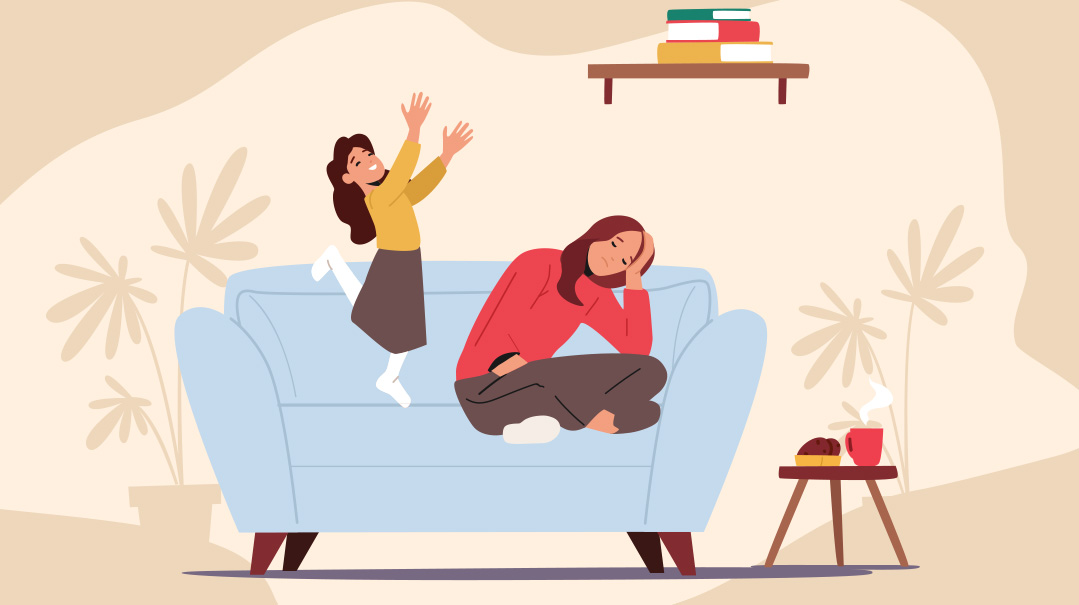Meds for ADHD?
| April 25, 2023Unfortunately, there is often a stigma surrounding the use of medications to manage ADHD

Meds for ADHD?
Jennie Berkovich
One extremely common issue I discuss with families in my practice is Attention Deficit Hyperactivity Disorder (ADHD). It’s estimated that five–ten percent of children in the United States have ADHD, with boys more likely to be diagnosed than girls.
ADHD is typically characterized by hyperactivity, impulsivity, and inattention. However, there are many nuanced and variable signs that prompt families or educators to investigate further. Teachers, tutors, and therapists often alert parents to their concerns, but an actual ADHD diagnosis is usually made by a medical professional, such as a pediatrician or psychiatrist.
Symptoms of ADHD must be present for at least six months and cause significant impairment in social or academic functioning. Bloodwork and imaging studies are typically not needed for diagnosis; standardized questionnaires are used instead.
Treatment options for ADHD may include therapy, coaching, and medication, including stimulants or non-stimulants. Medications can help improve attention and reduce hyperactivity and impulsivity, but they may also have side effects like appetite suppression and stomach upset. Behavioral therapy can help children with ADHD learn coping strategies and improve their social and academic skills.
Unfortunately, there is often a stigma surrounding the use of medications to manage ADHD, with some parents and caregivers hesitant to start these. This reluctance can stem from concerns about side effects or a belief that medication is not necessary, or even harmful. In truth, however, when used properly and under the guidance of a medical professional, medication can lead to significant improvements in academic and social functioning for children with ADHD.
It’s important to have open and honest conversations with your child’s medical provider about the benefits and potential risks of medication, and to work together to find the best treatment plan. It’s also important to remember that medication is not the only treatment option for ADHD, and that behavioral therapy, parent training, and other non-medication approaches can sometimes be effective in managing symptoms.
Treatments can evolve and do not have to be indefinite. I strongly encourage shared decision-making and ongoing communication between the family and their medical provider.
Dr. Jennie Berkovich is a board-certified pediatrician and serves as the Director of Education for the Jewish Orthodox Women’s Medical Association (JOWMA) Preventative Health Committee.
Rewriting Our Stories
Shira Savit
Changing our relationship with food starts with changing our story.
You see, we all have stories that we tell ourselves throughout the day. Stories about ourselves, our worth, our self-control. Stories about our body image. Usually, when we struggle with our eating, our stories are self-limiting and replete with disempowering messages.
With a bit of awareness, it becomes relatively simple to notice themes in our stories. For example, some of us live in the storybook called Black-and-White Thinking. In this narrative, it’s all or nothing; a diet or a cheat. “I blew it already, so there’s no point in even trying more today. The diet will start tomorrow.” The black-and-white storyline controls the day: “When I eat good, it’s a good day. When I eat bad things, it’s a bad day. When I have bad days, I feel miserable.”
There are innumerable varieties of stories: stories about shame, about rejection; stories that tell us that feelings are dangerous; stories that say we are unlovable until we lose weight. These themes are created through the combined influence of upbringing, friends, society, diet culture, and personal life experiences. The way we think about food, our beliefs about ourselves, our judgments and attitudes, all drive the content of our stories.
Like any habit that we seek to change, we can’t simply eliminate it without replacing it with something else. When it comes to changing our story, the most important point is that WE ARE THE AUTHOR of our new story. We get to write the script; we decide how we want it to sound.
For example, the black-and-white storybook can have chapters rewritten, such as, “I Can Overeat and STILL Make Good Choices Today” or “My Eating Doesn’t Define My Worth” or “It Doesn’t Have to Be Perfect, It Can Be Good Enough” and begin to fill in the pages as we notice these Gray occurrences happening throughout our day.
Noticing the stories we tell ourselves and making a conscious choice to rewrite our own narrative will create new neural pathways, enabling everlasting change in our relationship with food.
Shira Savit, MA, MHC, INHC is a mental health counselor and integrative nutritionist who specializes in emotional eating, binge eating, and somatic nutrition. Shira works both virtually and in person in Jerusalem.
Who, Me?
Shoshana Schwartz
When things go wrong, some people impulsively blame others in order to avoid discomfort (such as shame or fear of being found unworthy). You may find, on the other hand, that your automatic reflex is to blame yourself — constantly, instantly, insistently.
One of the reasons we blame ourselves is because if it’s my fault, then it’s in my power to fix it. Of course that’s often untrue, but the illusion that it’s true makes us feel in control, and thus temporarily lowers our anxiety.
The question is, what’s the price you’re paying for all that ongoing self-blame?
Shoshana Schwartz specializes in addiction and codependency. She gives in-person and online addiction prevention lectures and workshops to education and mental health professionals, community leaders, and parent groups, as well as 12-Step workshops for non-addicts.
(Originally featured in Family First, Issue 840)
Oops! We could not locate your form.







